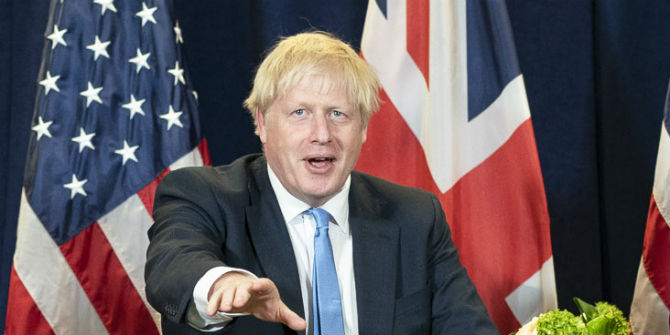The EU Referendum results reveal a sharp generational divide in British politics. According to YouGov, under-25s were more than twice as likely to vote Remain (71%) than Leave (29%), while among over-65s the picture is almost the exact opposite.
This panel discussion by Jennifer Jackson-Preece, Manmit Bhambra, Michael Cottakis, Roch Dunin-Wąsowicz, Claire Gordon, and Darren Moon considered how Brexit is shaping the politics of young voters, and the potential implications for the future of UK / Europe relations.
This post represents the views of the authors and not those of the LSE Brexit blog, nor the LSE.
Dr Jennifer Jackson-Preece, LSE European Institute
Dr Manmit Bhambra, LSE European Institute & LSE 100
Michael Cottakis, 1989 Generation Initiative
Dr Roch Dunin-Wąsowicz, LSE Brexit & LSE 100
Dr Claire Gordon, LSE Teaching & Learning Centre
Darren Moon, LSE Learning Technology & Innovation







More experienced people are less likely to be myopically naive.
No, older people are more likely to be bigoted and ignorant.
Thel very large Commons majorities in favour of triggering Article 50 can be seen as honourable, constitutional ratification and vindication of the outcome of the Referendum, notwithstanding continuing efforts to reverse it. There is still some way to go, of course. I predicted (won a bet on) Referendum result, but was surprised at its closeness. On the basis of subsequent experience, however, if there were to be a re-run – without lies, exaggerations and unsupportable claims, but with clearer focus on the fundamental issue – I believe the ranks of the Leavers could well be augmented, e.g.by those who look for guidance to the Archbishop of Canterbury, a moral leader to many people.
The UK has certainly benefitted during membership of the EU, although the benefits may have been gained anyway, later or maybe even sooner. There seems to be no doubt that there were ignorant, sad, people who voted Leave for reasons that were irrational, selfish, base, short-sighted and prejudiced – as can happen in any such appeal to public opinion. However, the attitude and language of some people sincerely keen to retain membership suggest a possible lack of appreciation of why many others – also sincere and of intelligence, knowledge and experience, and not racist, not xenophobic and not anti-immigrant, and – perhaps generally rather older and thereby more likely to be informed by history and logic to be free from myopic naivety – cast their Referendum votes with the altruistic, overarching, fundamental aim of freeing themselves, and their offspring, from what they fear as the foreseeable disastrous ultimate outcome of the continuing growth of supranational EU power without commensurate democratic accountability. In comparison, the undoubted difficulties associated with a negotiated, orderly disengagement of the UK seem infinitely preferable.
It now appears more than a possibility that other members will seek to follow the UK out of the EU, initially, maybe, to leave the monetary union…hopefully without a swing to extremism. Meanwhile, the continuing lack of an effective Opposition to provide checks and balances at Westminster is a matter of serious concern.
A really good and insightful lecture marred by the camera operator who focussed entirely on the speakers and not the slides! Talk about frustrating – split screen needed?
Is there any chance you could publish the slides as a PowerPoint file or even a PDF, and perhaps I’ll have another go…. Along with others I think.